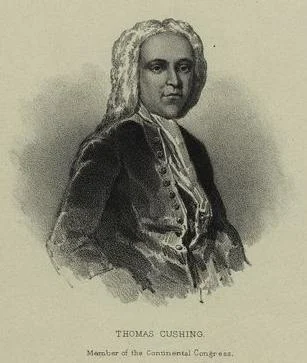Thomas Bee Gets Published By The Enemy
Thomas Bee served as Lieutenant Governor of South Carolina during the Revolutionary War.
Bee’s biggest challenge was his desperate attempt to get more troops to defend his State.
Thomas Bee
The British were coming.
It was 1779 and this time they were heading to South Carolina. The army was moving with ease through Georgia all signs pointed to their taking of Charleston.
Lieutenant Governor Thomas Bee was in a mad scramble to defend his State.
Desperate for Troops
Thomas Bee was a wealthy plantation owner and lawyer who spent several years in the South Carolina House of Representatives before and during the American Revolutionary War.
Bee was thrust into the spotlight when Governor John Rutledge went out to lead the State Militia against the oncoming British.
South Carolina was promised additional troops from the Virginia Militia, but they were not coming.
Bee wrote an anxious letter to Richard Henry Lee who was a member of the Continental Congress’ Committee on Southern Affairs. Lee then contacted General Washington with recommendations but left the final decision to the Commander-in-Chief.
Intercepted Intelligence
Washington could only spare so many soldiers.
After ordering two regiments of the Continental Army to head south, he wrote:
“I am at a loss what additional measures to advise. Troops from this army cannot possibly be sent for the reasons repeatedly assigned.”
This letdown did not stop Bee from attempting to retain the men he needed. Within a month he contacted Virginia Governor Patrick Henry, attempting to appeal to his Patriotism.
Unfortunately, the letter Thomas wrote to Henry was intercepted and published in a Loyalist newspaper in New York.
Though embarrassed, Bee did not receive much criticism as the author of the letter, since it was the messenger who allowed the information to fall into enemy hands.
Although the Siege of Charleston would not begin for several months after these events, South Carolina never received the full amount of support necessary to defend the city.
Continental Congress
After a long, stressful year as Lieutenant Governor, Thomas Bee was sent as a delegate to the Continental Congress.
While in Congress, Bee focused primarily on Foreign Affairs.
Thomas was one of the leading commissioners tasked with settling the debates between the actions of Silas Deane and Arthur Lee in France.
Additionally, he helped settle the tax status of French and German citizens living in the United States under the Articles of Confederation.
Midnight Judge
After serving in the Continental Congress, Thomas Bee returned to the South Carolina House of Representatives where he became Speaker of the House.
When the Revolutionary War concluded, Bee was elevated to the State Senate.
By the time the United States entered its second year of government under the Constitution, Thomas was appointed as a Federal Judge by President Washington to the district of South Carolina.
Eleven years later, Bee was one of the Midnight Judges appointed by President John Adams in the weeks before Thomas Jefferson took over the land’s highest office. His new title was Chief Judge of the Fifth Circuit Court and he remained in this office till his last breath.
If you enjoyed this article, you might like my essays on some other South Carolinians like William Moultrie or Christopher Gadsden.
For more information on the Founding Period in South Carolina, check out ‘Trade, Politics and Revolution,’ which can be purchased through the Amazon affiliate link below.
If you are new to this page, make sure you subscribe to our email list for a new Founder every day.





